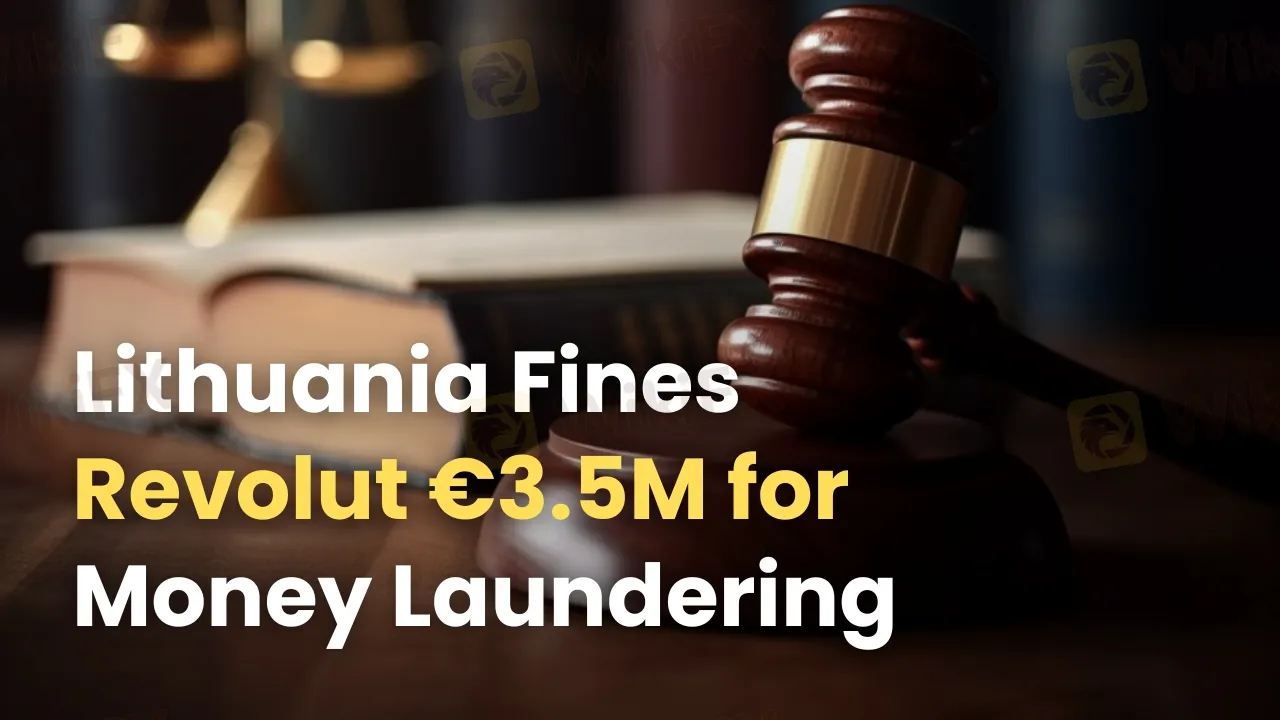简体中文
繁體中文
English
Pусский
日本語
ภาษาไทย
Tiếng Việt
Bahasa Indonesia
Español
हिन्दी
Filippiiniläinen
Français
Deutsch
Português
Türkçe
한국어
العربية
Lithuania Fines Revolut €3.5M for Money Laundering Failures
Abstract:Lithuania‘s central bank fines Revolut €3.5M for money laundering prevention lapses. Learn about the investigation, Revolut’s response, and its impact on fintech.

Lithuanias central bank has handed down a staggering €3.5 million ($3.83 million) fine to Revolut, the British fintech powerhouse, for weaknesses in its efforts to prevent money laundering. This penalty, the biggest ever from the bank, came after a standard review exposed serious flaws in how Revolut tracked its business dealings and activities.
The central bank pointed out that these missteps left Revolut unable to spot questionable transactions effectively. In response, Revolut stressed that the probe didnt uncover any real “money laundering” cases. Rather, it highlighted spots where their current safeguards could use some work. The firm insisted it takes regulatory rules seriously and has teamed up with Lithuanian officials to fix the problems.

The size of the fine mirrors both the weight of the slip-ups and Revolut‘s hefty footprint in the European Economic Area (EEA). Revolut Holdings Europe, which handles the company’s regulated operations in the region, raked in a record £438 million ($559.5 million) in pretax profit in 2023. With a valuation hitting $45 billion in August, Revolut stands tall as a major force in the worldwide fintech scene.
On another front, Revolut has joined forces with Visa to push back against the UK Payment Systems Regulator‘s (PSR) plan to cap interchange fees. The duo argues that such limits would choke competition and slow down fresh ideas in the fintech world. They warn that the PSR’s move might force banks to trim perks like rewards or tack on new charges, hitting customers in the wallet. Visa added that slashing interchange fee income could stunt growth and weaken the markets competitive edge.
This fine puts Revolut at a crossroads, juggling regulatory hurdles while holding its ground as a top fintech contender. How it handles these challenges could steer its path forward and define its standing in the tightly controlled financial landscape.

Disclaimer:
The views in this article only represent the author's personal views, and do not constitute investment advice on this platform. This platform does not guarantee the accuracy, completeness and timeliness of the information in the article, and will not be liable for any loss caused by the use of or reliance on the information in the article.
Read more

Revolut Expands into Latin America with Strategic Argentina Acquisition
Revolut acquires Banco Cetelem from BNP Paribas, marking its Argentina entry. This Revolut acquisition in Argentina signals a major Latin America expansion move.

Citibank Sued in $20M Romance Scam Tied to Fraudulent Transfers
Citibank faces a lawsuit over a $20M romance scam. Plaintiff alleges the bank enabled fraud by failing to block suspicious transfers.

Gold Price Expected to Surge 20% by 2026, Says Bank of America
Discover how gold prices are expected to rise by 20% by 2026 amid weak dollar index and US fiscal deficit concerns, in this story.

Gold Rate Today in Mumbai and Other Updates on Your Fingertips
After correcting for two straight days, gold rebounded on June 26, 2025, across 24 Karat and 22 Karat categories in Mumbai, the financial capital of India. Check out the latest price update.
WikiFX Broker
Latest News
PU Prime and AFA Announce Partnership at Madrid Event
ASIC Warns of Escalating Share Sale Scams Amid $119M Scam Losses
A Guide to RBI Forex Rules in India
“Wins with $19,916 weekly profit on Exnova”? There is something you should know.
Oil Prices Slide After Cease-Fire
IQ Option: Regulation, Warnings, and What Traders Need to Know
How Macro Events Drive Energy Price Fluctuations and Their Linked Impact on the Global Forex Market
Clones of ThinkMarkets Are Lurking | Don’t Fall for the Fake
Top 5 Forex Brokers Offering Islamic Accounts in 2025
Family offices double down on private credit and infrastructure during private equity slump, survey finds
Currency Calculator


